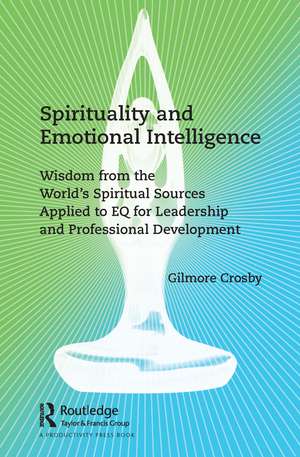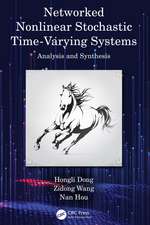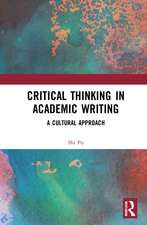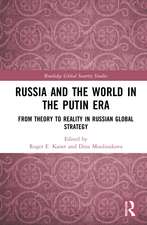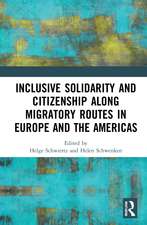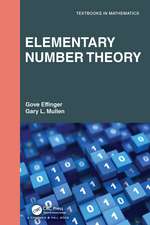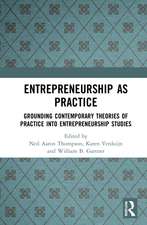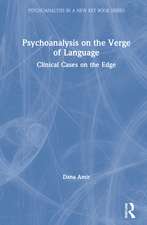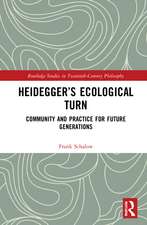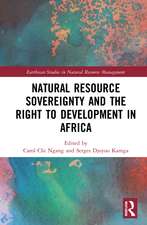Spirituality and Emotional Intelligence: Wisdom from the World’s Spiritual Sources Applied to EQ for Leadership and Professional Development
Autor Gilmore Crosbyen Limba Engleză Paperback – 18 aug 2021
We are all reactive at times. Becoming more objective and less attached allows us to feel our feelings without being a prisoner to acting on them in habitual ways. From a more detached perspective, feelings are neither good nor bad, but simply clues as to how we are perceiving our environment, especially our social environment. This is especially important in terms of our relationships at work. Our perceptions about what people intend trigger our emotional reactions. Think about the difference when you perceive critical feedback as a sincere attempt to help or when you perceive it as an attack of some sort. Perception evokes different emotional responses. Objectivity about our own perception is even more important than objectivity about emotion, because the former usually precedes the later.
Paradoxically, being detached allows one to appreciate and experience one’s emotions more fully. Recognizing emotion as part of your inner guidance system instead of as something dangerous that must be controlled or denied is freeing. The less emotion runs you, the more you can accept feeling what you feel. Emotion is a form of physical energy. Fighting your own feelings takes energy. Allowing the ebb and flow of emotion is essential to physical and emotional health and to accepting ourselves as we are.
| Toate formatele și edițiile | Preț | Express |
|---|---|---|
| Paperback (1) | 237.27 lei 6-8 săpt. | |
| Taylor & Francis – 18 aug 2021 | 237.27 lei 6-8 săpt. | |
| Hardback (1) | 780.26 lei 6-8 săpt. | |
| Taylor & Francis – 18 aug 2021 | 780.26 lei 6-8 săpt. |
Preț: 237.27 lei
Nou
Puncte Express: 356
Preț estimativ în valută:
45.40€ • 47.41$ • 37.49£
45.40€ • 47.41$ • 37.49£
Carte tipărită la comandă
Livrare economică 15-29 aprilie
Preluare comenzi: 021 569.72.76
Specificații
ISBN-13: 9781032038391
ISBN-10: 103203839X
Pagini: 188
Ilustrații: 22
Dimensiuni: 152 x 229 x 13 mm
Greutate: 0.27 kg
Ediția:1
Editura: Taylor & Francis
Colecția Productivity Press
Locul publicării:Oxford, United Kingdom
ISBN-10: 103203839X
Pagini: 188
Ilustrații: 22
Dimensiuni: 152 x 229 x 13 mm
Greutate: 0.27 kg
Ediția:1
Editura: Taylor & Francis
Colecția Productivity Press
Locul publicării:Oxford, United Kingdom
Public țintă
Professional and Professional Practice & DevelopmentNotă biografică
Gilmore Crosby is the president of Crosby & Associates. He has expertise in Leadership, Learning, and Organization Development. He has over three decades of experience, including management positions in five organizations. He has deep experience in facilitating performance improvement through initiatives such as coaching and team development (from upper management to the floor), process improvement, assessment methodologies (organizational, team, and individual), conflict resolution, and other OD and change management solutions. Responsible for design, development, and delivery of innovative learning solutions, ranging from individual coaching to accredited leadership development programs.
Recenzii
Anyone involved in leadership development—or personal development of any kind—knows that, at bottom, what is being addressed is beyond psychology or behavior. It is that ‘More’ which only spiritual masters have the courage to speak about. In this book, Gil Crosby is building a bridge-between-the-worlds for us all.
-- Dr. John J. Scherer, Lutheran Pastor, Founding Director, Scherer Leadership Center, Author of Facing the Tiger: Five Questions that Change Everything
I'm delighted with this book! Having published two books of my own on the subject, this book is a great next step! In my latter days I've come to realize that it requires great amounts of EQ to be able to embody religious teachings. Jesus tells us to love our neighbors. You tell me how we might execute such acts of kindness without huge gobs of EQ under our belt. Then Jesus commands us to also love our enemies----which is impossible without multiple skills in EQ. This is why EQ ought to be taught in denominational seminaries. Congregational clergy need to be highly skilled in EQ as they set the tone for the kind of EQ that is practiced within their congregations-plus being able to coach congregational members in how to embody religious principles in their daily lives. The ministry of clergy goes nowhere without their capacity to develop in-depth relationships with congregants-which requires great EQ skills. It is what makes them credible. Gil Crosby and his father practice what they preach. They use T-group methodology to teach EQ as does the Center I founded. I give thanks for these kindred spirits and their important contribution to the much needed marriage of spirituality and EQ.
--Roy M. Oswald, Ordained Lutheran Pastor, Founder and first Executive Director, Center for Emotional Intelligence and Human Relations Skill, Author of The Emotional Intelligence of Jesus and Emotional Intelligence for Religious Leaders.
I am a proponent of understanding the self and questioning of everything. I do so and I live grounded in a Hindu perspective. My spirituality has carried me through the loss of my wife to cancer, the immediate remarriage to someone whom I did not know before, the creation of a multimillion dollar eco-water park on the north coast of Jamaica from scratch by building it ‘in the night’ while running my process control engineering business on the opposite end of the island in the day, and now a new life in Nova Scotia. Gil and his family have been an inspiration in my journey these past 20 plus years and this book is testament of his work helping to achieve enlightenment. Enjoy reading!
-- Gobind Dansinghani, Performance Manager of Honeywell Canada Ltd- Eastern Region.
I highly recommend this work for spiritual enthusiasts and those searching for a sense of self. By drawing on the spiritual traditions of the past and present and skillfully weaving the key tenets of emotional intelligence the final product is useful for spiritual practitioners and those in search of a meaningful or purposeful life.
-- Reverend Garth Minott, Episcopal/Anglican Church of Jamaica
Gil's book on Spirituality through Emotional Intelligence has a concrete 'relatable-to-life' feel consistent with his earlier books. His assiduousness reveals itself in the wide variety of philosophies, faiths, regions and traditions he integrates through almost any chapter he has covered. What it means for the reader is a comprehensive grasp that, like a Glossary of Spiritual anchors engages the reader. Most chapters have the ambit of Management of Self and Self-Awareness, tied closely with Social Awareness and Social Skills for personal impact. With specific emotions finding elaborate treatment under his lens, Gil's workbook connections for readers are ensconced in a spiritual tradition of the larger Crosby family in authentic Organization Development work. In near eudaimonic character, Gil's work on this book unravels the perceptive wide-compass radar that his curiosity of the human condition represents. And it is formidable.
-- Joseph George Anjilvelil, Founder, Workplace Catalysts LLP, Bangalore, India, Author of BEING PEOPLE : Life-histories of Six HRD Professionals of India.
Any event can be partially understood through different ‘lenses’ using the language of psychology. sociology, ‘street-cred’, etc. Gil has chosen to illuminate EQ through the lens of spirituality. Being aware of one’s emotions and choosing a productive behavior is indeed a spiritual function! ‘Don’t do what you feel. Rather, feel what you feel and choose what you do.’ That simple quote frees a Jesus to experience anger (in the Temple), anguish, sorrow, and love while staying centered. It frees a Gandhi, a MLK Jr., and you and me from being a victim of our emotionally and therefore simply living a reactive life on the end of strings pulled by our shifting emotionality. Thanks son, for inviting us on this journey!
-- Robert P Crosby, Master of Divinity (United Theological Seminary), Master of Sacred Theology (Boston University), Lh.D. (Bastyr University)
-- Dr. John J. Scherer, Lutheran Pastor, Founding Director, Scherer Leadership Center, Author of Facing the Tiger: Five Questions that Change Everything
I'm delighted with this book! Having published two books of my own on the subject, this book is a great next step! In my latter days I've come to realize that it requires great amounts of EQ to be able to embody religious teachings. Jesus tells us to love our neighbors. You tell me how we might execute such acts of kindness without huge gobs of EQ under our belt. Then Jesus commands us to also love our enemies----which is impossible without multiple skills in EQ. This is why EQ ought to be taught in denominational seminaries. Congregational clergy need to be highly skilled in EQ as they set the tone for the kind of EQ that is practiced within their congregations-plus being able to coach congregational members in how to embody religious principles in their daily lives. The ministry of clergy goes nowhere without their capacity to develop in-depth relationships with congregants-which requires great EQ skills. It is what makes them credible. Gil Crosby and his father practice what they preach. They use T-group methodology to teach EQ as does the Center I founded. I give thanks for these kindred spirits and their important contribution to the much needed marriage of spirituality and EQ.
--Roy M. Oswald, Ordained Lutheran Pastor, Founder and first Executive Director, Center for Emotional Intelligence and Human Relations Skill, Author of The Emotional Intelligence of Jesus and Emotional Intelligence for Religious Leaders.
I am a proponent of understanding the self and questioning of everything. I do so and I live grounded in a Hindu perspective. My spirituality has carried me through the loss of my wife to cancer, the immediate remarriage to someone whom I did not know before, the creation of a multimillion dollar eco-water park on the north coast of Jamaica from scratch by building it ‘in the night’ while running my process control engineering business on the opposite end of the island in the day, and now a new life in Nova Scotia. Gil and his family have been an inspiration in my journey these past 20 plus years and this book is testament of his work helping to achieve enlightenment. Enjoy reading!
-- Gobind Dansinghani, Performance Manager of Honeywell Canada Ltd- Eastern Region.
I highly recommend this work for spiritual enthusiasts and those searching for a sense of self. By drawing on the spiritual traditions of the past and present and skillfully weaving the key tenets of emotional intelligence the final product is useful for spiritual practitioners and those in search of a meaningful or purposeful life.
-- Reverend Garth Minott, Episcopal/Anglican Church of Jamaica
Gil's book on Spirituality through Emotional Intelligence has a concrete 'relatable-to-life' feel consistent with his earlier books. His assiduousness reveals itself in the wide variety of philosophies, faiths, regions and traditions he integrates through almost any chapter he has covered. What it means for the reader is a comprehensive grasp that, like a Glossary of Spiritual anchors engages the reader. Most chapters have the ambit of Management of Self and Self-Awareness, tied closely with Social Awareness and Social Skills for personal impact. With specific emotions finding elaborate treatment under his lens, Gil's workbook connections for readers are ensconced in a spiritual tradition of the larger Crosby family in authentic Organization Development work. In near eudaimonic character, Gil's work on this book unravels the perceptive wide-compass radar that his curiosity of the human condition represents. And it is formidable.
-- Joseph George Anjilvelil, Founder, Workplace Catalysts LLP, Bangalore, India, Author of BEING PEOPLE : Life-histories of Six HRD Professionals of India.
Any event can be partially understood through different ‘lenses’ using the language of psychology. sociology, ‘street-cred’, etc. Gil has chosen to illuminate EQ through the lens of spirituality. Being aware of one’s emotions and choosing a productive behavior is indeed a spiritual function! ‘Don’t do what you feel. Rather, feel what you feel and choose what you do.’ That simple quote frees a Jesus to experience anger (in the Temple), anguish, sorrow, and love while staying centered. It frees a Gandhi, a MLK Jr., and you and me from being a victim of our emotionally and therefore simply living a reactive life on the end of strings pulled by our shifting emotionality. Thanks son, for inviting us on this journey!
-- Robert P Crosby, Master of Divinity (United Theological Seminary), Master of Sacred Theology (Boston University), Lh.D. (Bastyr University)
Cuprins
SECTION 1: EQ THEORY, Chapter 1: Crosby-Style EQ, Chapter 2: The Crosby EQ Hierarchy, Chapter 3: EQ Hierarchy Level One - Self-Awareness, Chapter 4: EQ Hierarchy Level Two - Empathy, Chapter 5: EQ Hierarchy Level Three - Skills, Chapter 6: Cognition & Emotion (Cause & Effect), Chapter 7: Attachment and Detachment, Chapter 8: Behavioral Science Meets the Toltec Mayans, Chapter 9: Out Here in the Fields (Field Theory), Chapter 10: Leadership, Chapter 11: Non-Violence, Chapter 12: Marshmallows on a Stick, SECTION 2: EMOTIONS – RED, YELLOW & BLUE, Chapter 13: Red (Hard) Emotions, Chapter 14: Blue (Fragile) Emotions, Chapter 15: Yellow (Soft) Emotions
Descriere
This book weaves together spirituality and a systemic version of emotional intelligence that incorporates Kurt Lewin’s social science and other sources. Emotional intelligence calls on us to be fully present "to the moment." It calls on us to be appreciative of ourselves and our relationships.
